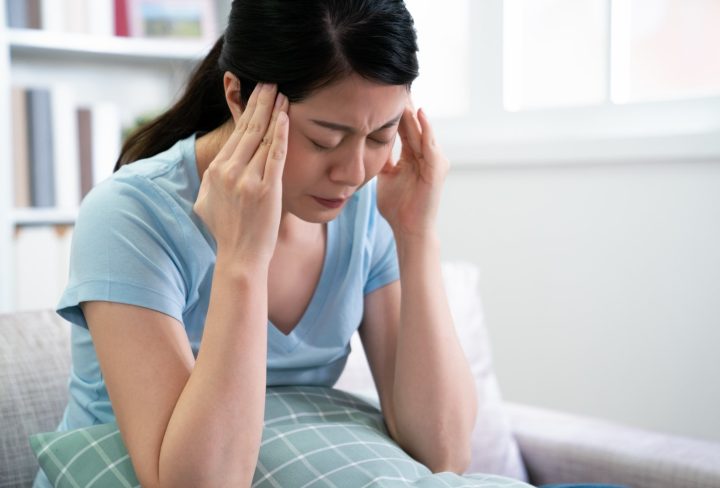Vertigo: What is it?
It is a common feeling of spinning dizziness due to an inner ear problem, head injuries, and certain medications.
Benign paroxysmal positional vertigo (BPPV) is one of the most common causes of vertigo that causes sudden sensation that you are spinning or that the inside of your head is spinning.
Types of Vertigo
Vertigo can happen when a person looks down from a great height.
- Central vertigo (issue with the brain)
- Peripheral vertigo (issue with the inner ear)
Symptoms
Vertigo itself is a symptom alongside other symptoms.
- Balance problems
- Motion sickness
- Nausea and vomiting
- Ringing in the ear
- Feeling of fullness in the ear
- Headaches
- Nystagmus (eyes move uncontrollably from side to side)
Causes of Vertigo
Inner ear problems like:
• Benign paroxysmal positional vertigo (BPPV)
• Labyrinthitis
• Vestibular neuritis
• Meniere’s disease
Other causes include:
• Migraine
• Medications
Diagnosis of Vertigo
Physical examination
Diagnostic Tests
- CT or MRI Scan
- Fukuda-Unterberger’s test (Stepping test)
- Romberg’s test (Balance test)
- Head impulse test (Coordination test)
- Vestibular test battery (Hearing function test)
Treatment of Vertigo
Vertigo usually goes away on its own.
Medication: To relieve symptoms
Vestibular rehabilitation: Helps strengthen other senses to compensate for vertigo episodes
Canalith repositioning procedure (CRP): Procedure to the inner ear
Surgery: For serious underlying issues, such as a brain tumor or neck injury
When to Call a Doctor?
You have vertigo and:
• Severe headache
• Feel very sick
• High temperature (feel hot or shivery)
Preventive Measures for Vertigo
How To Stop Vertigo Attacks?
• Take extra time to stand up, turn your head or perform other triggering movements.
• Sleep with your head elevated
• Sit when you feel dizzy
• Do squat instead of bending when picking up something
Steps to Reduce the Effects of Vertigo
• Lie still in a quiet, dark room when the spinning is severe
• Sit down as soon as you feel dizzy
• Take extra time to perform trigger movements
• Use a cane when walking
Note: Do not drive or use ladders if you experience vertigo or other types of dizziness.
Vertigo in Pregnancy
Changes in fluid characteristics in the inner ear due to hormonal changes during pregnancy can cause:
• Vertigo
• Loss of Balance
• Hearing Difficulties
• Feeling of Fullness in the Ear
Is Vertigo Hereditary?
Vertigo itself is not necessarily hereditary but could be a symptom of various hereditary conditions.
Scientists discovered 6 gene variants associated with vertigo. These genes play a role in the development, maintenance, and problems of inner ear.
Vertigo vs. Dizziness
While both dizziness and vertigo are considered balance problems, the two symptoms are different.
Dizziness is an overall feeling of unbalance. With vertigo, you may feel like the environment around you is spinning in circles.
Who Can Experience Vertigo?
• Vertigo attacks can occur at any age, but they are more common in people > 65 years.
• Women are more likely to experience vertigo than men.
• Some people may experience vertigo as a side effect of pregnancy.
Is Vertigo a Serious Condition?
Vertigo can be scary, but the condition is not considered serious.
However, vertigo can be linked to many serious health problems.
Talk to your doctor if you experience recurrent or prolonged vertigo attacks.
What is Migraine-associated Vertigo?
Many people with migraines experience vertigo during episodes.
Vertigo can occur before or during a headache episode.
However, some people may also experience vertigo as a main migraine symptom.
While vertigo can be a challenging condition to manage, there are several treatment options available, including medication, physical therapy, and lifestyle changes. It is important to consult with a doctor and take steps to manage the condition and reduce symptoms.


